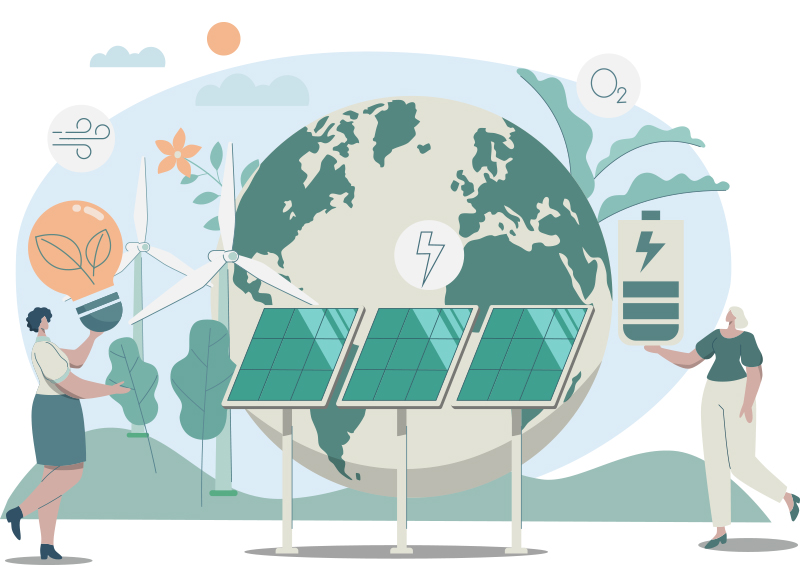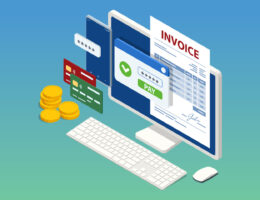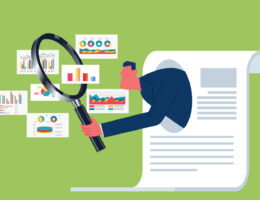Technology. Sustainability. Regulation. Changing business models. These are among the powerful forces rapidly reshaping the accountancy profession today.
However, the profession has always been resilient and adaptable. From papyrus to ledgers—and centuries later, to Excel, automation, and now generative AI— accountants have devised pragmatic solutions, leveraged change, and reached new heights.
In doing so, we have always held fast to the virtues and ethics code that define our profession. Now, more than ever, as digitalisation and sustainability become mainstream in a complex world, accountants must uphold ethical standards to preserve trust, relevance, and competitiveness. As stewards of financial integrity and strategic advisors, we must exercise professional judgement to ensure that digital and sustainability solutions align with our ethics code and support good governance. We must practice informed compliance—not merely following the rules but interpreting them within rapidly evolving contexts to balance innovation with accountability and sustainable value creation.
As the national accountancy body of the profession established under the Accountants Act 1967, MIA reaffirms our commitment—and that of our more than 40,000 members—to the values of integrity, objectivity, due care, confidentiality, and professional behavior. Ethics is a must-have to ensure that as we advance in technology and sustainability, we are recognised andrelevant as trusted advisors, partners, and value creators.
How can we achieve this? One key measure is mandatory ethics training. Starting 1 January 2026, professional accountants must complete a minimum of two structured and verifiable CPE hours related to professional ethics. This step underscores the growing importance of ethics in the accountancy profession and ensures that MIA members remain up-to-date on evolving ethical standards and best practices.
Nurturing Ethical Digital Transformation
Since 2016, MIA has advocated for digital transformation to future-proof the profession.
Today, the adoption of automation and AI in audit, tax, and advisory services is accelerating. To remain relevant, we must align with today’s data-driven organisations, using AI tools that process thousands of transactions in seconds to detect anomalies. Nevertheless, without ethical oversight, such tools may reinforce biases, misinterpret context, or risk data privacy. Hence, accountants must understand and question the assumptions and training data behind AI models, and be accountable for their output. Similarly, the utilisation of cloud platforms offers flexibility and scale but raise concerns about data sovereignty, especially across ASEAN borders.
To support members in digital adoption, MIA rolled out key initiatives under the MIA Digital Technology Blueprint launched in 2018. Notably, we released the Ethical Guidelines on Technology Usage in 2023, highlighting risks such as data misuse, algorithmic bias, and confidentiality breaches—all of which are escalating alongside cyber threats.
The adoption of technology is a neverending journey. With that in mind, we organise the annual MIA Accounting and Financial Technology Showcase, a one-stop centre for digital solutions tailored for the profession. In parallel, the biannual Digital Technology Adoption Awards (DTAA) recognise excellence in digital adoption, and champion role models in virtuous transformation.

Each year, MIA runs nearly 1,000 professional development programmes, embedding elements of digital skills, bias detection, cybersecurity, change management, and professional judgement – all aimed at creating tech-fluent, ethically grounded accountants.
Fostering Ethical Sustainability
As climate and environmental risks rise, ASEAN economies, including Malaysia, are committing to stricter sustainability disclosures and emissions targets. Drawing on their unique skillsets and expertise, accountants must ensure that sustainability metrics are as credible as financial data, as organisations pursue sustainability integration.
This includes integrating climate data into risk assessments, supporting circular economies, and engaging stakeholders on long-term sustainable value creation. Our ethical compass, and growing scrutiny by stakeholders, demand that sustainability reporting becomes a priority—not a checkbox exercise.
This message—that accountants are now pivotal to sustainability leadership— resonated with the 3,800 attendees of the MIA International Accountants Conference 2025. In his keynote, YB Senator Datuk Seri Amir Hamzah Azizan, Minister of Finance II of Malaysia, affirmed the profession’s alignment with national green agendas, including the National Energy Transition Roadmap (NETR) and the New Industrial Master Plan 2030 (NIMP 2030):
“In executing these plans, we are counting on accountants to play a critical role in guiding companies to improve their sustainability practices, particularly in governance, by ensuring high-quality, reliable disclosures are aligned with international standards. Such reliable and credible reporting is crucial for attracting low-carbon investments and enhancing the international competitiveness and green credentials of Malaysian products.”
To drive this agenda, MIA collaborates with stakeholders to advocate for ethical sustainability, support national objectives, and future-proof the profession. We have also innovated our proprietary initiatives for sustainability advocacy. At the end of 2022, MIA introduced the MIA Sustainability Agenda, followed by the launch of the MIA Sustainability Blueprint at the MIA International Accountants Conference 2024. In January 2025, the MIA Council approved the MIA Sustainability Roadmap, consisting of 169 initiatives over five years and involving 16 committees.
Key components of the Roadmap include supporting the National Sustainability Reporting Framework (NSRF) via capacity building, encouraging technology adoption
to facilitate sustainability outcomes, and implementing the International Standard on Sustainability Assurance (ISSA) 5000, General Requirements for Sustainability Assurance and in future, the International Ethics Standards for Sustainability Assurance (IESSA).
The global baselines of IFRS S1 and S2 as well as adoption of ISSA 5000 align with NETR, NIMP 2030, and ASEAN’s shared commitment to quality sustainability reporting and assurance. Meanwhile, our adoption of IESSA will help address critical risks to the integrity, quality and effectiveness of sustainability reporting and assurance such as bias, conflicts of interest, pressure to act unethically, fraud including greenwashing, non-compliance with laws and regulations, and threats to the independence of assurance practitioners.
To strengthen implementation, we focus on capacity building and advocate for harmonisation and convergence to address evolving standards for sustainability reporting, assurance, and ethics, supported by our extensive public consultations and responses to exposure drafts.
Our approach underscores the key role of accountants in interpreting the different suites of global standards and applying them with ethical consistency, supporting sustainable investment and responsible business.
Connecting Ethics, Technology, and Sustainability for a Better Tomorrow
Throughout all that we do, MIA continues to champion ethical technology stewardship and sustainability advocacy across all levels of the profession, upholding our broader mission of nation building.
As Malaysia and ASEAN undergo digitalisation and decarbonisation, accountancy professionals must ensure that these transitions are guided responsibly. Ethics is the bedrock that helps us balance innovation, sustainability, and the public interest.
By embedding ethics in every aspect of our work, we can shape a future that is not only advanced and prosperous—but principled.
Let’s be the changemakers of tomorrow.
This article originally appeared on the AFA Connect 15. Copyright © 2025 by the Asean Federation of Accountants (AFA). All rights reserved. Used with permission of AFA. Contact [email protected] for permission to reproduce, store, or transmit this document







